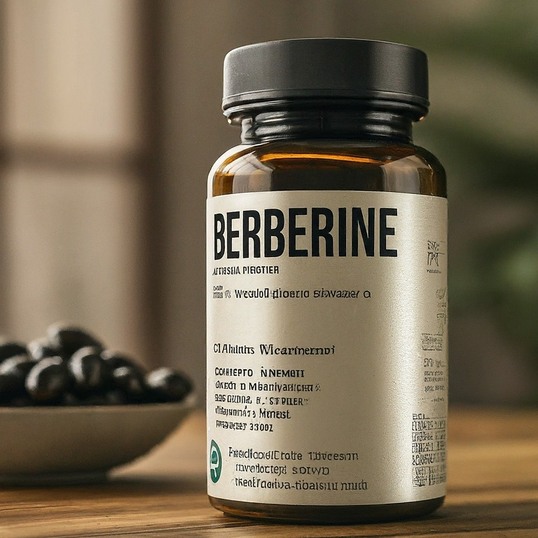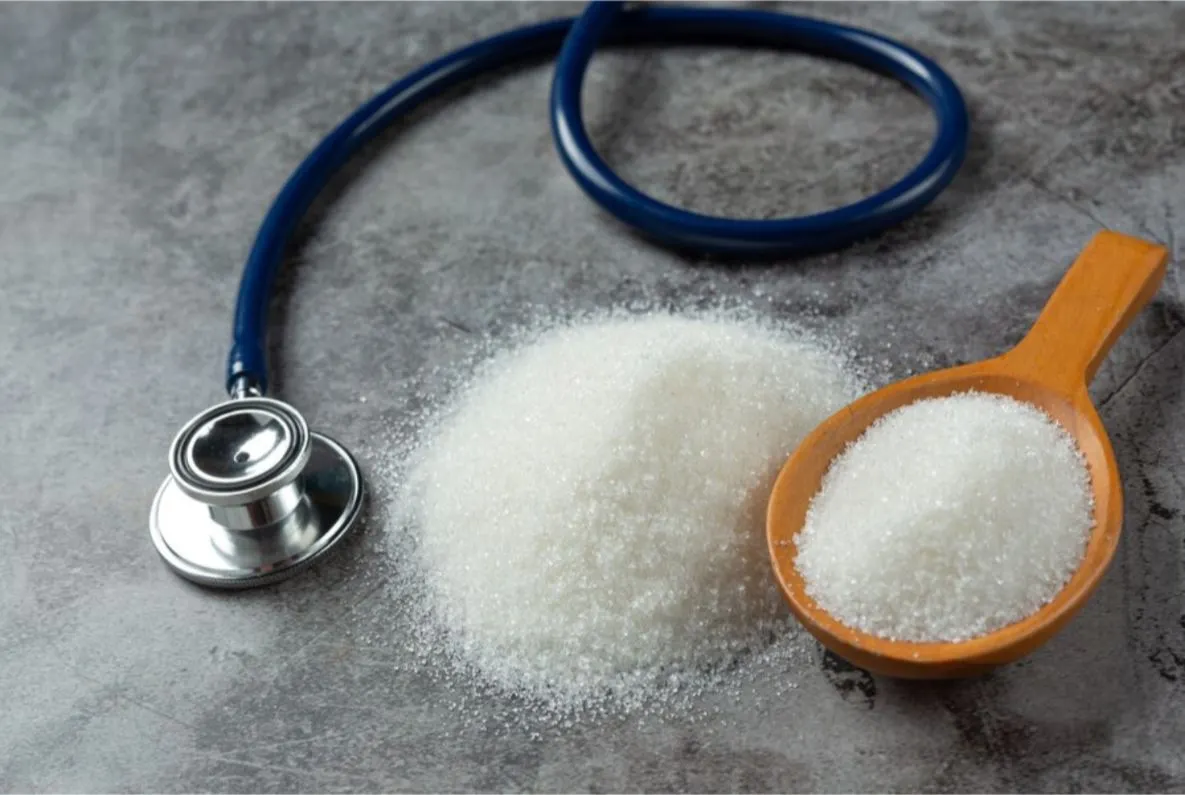A Natural Compound with Potential Health Benefits
Berberine is a compound found in several plants, including European barberry, goldenseal, goldthread, Oregon grape, phellodendron, and tree turmeric. It has a long history of use in traditional Chinese and Ayurvedic medicine for various health conditions.
Key characteristics of berberine include:
- Bitter taste: It has a distinctive bitter flavor.
- Yellow color: It is a bright yellow compound.
- Antimicrobial properties: It exhibits antibacterial and antifungal activities.
- Metabolic effects: It has been studied for its potential to improve blood sugar control, cholesterol levels, and insulin sensitivity.
In recent years, scientific research has focused on berberine’s potential health benefits, including its role in managing diabetes, heart disease, and digestive disorders.
Potential Health Benefits of Berberine
Berberine, a compound derived from certain plants, has garnered attention for its potential health benefits. While more research is needed, studies suggest that berberine may be beneficial in several areas:
Blood Sugar Control
Berberine has shown promise in managing blood sugar levels, making it a potential adjunct therapy for individuals with type 2 diabetes. It works by enhancing insulin sensitivity, allowing the body to use insulin more effectively.
Cholesterol Management
Research indicates that berberine can help improve cholesterol levels by reducing LDL (bad) cholesterol and triglycerides while increasing HDL (good) cholesterol. This lipid-lowering effect contributes to overall cardiovascular health.
Heart Health
Beyond its impact on cholesterol, berberine’s ability to regulate blood sugar and blood pressure suggests potential benefits for heart health. By reducing the risk factors for heart disease, berberine may contribute to a healthier cardiovascular system.
Anti-Inflammatory Properties
Chronic inflammation is linked to various health conditions. Berberine’s anti-inflammatory properties may help manage conditions associated with inflammation, such as arthritis and digestive disorders.
Digestive Health
While more research is necessary, some studies suggest that berberine may have beneficial effects on gut health. It may help with digestive discomfort and support overall gut function.
Weight Management
Although evidence is still emerging, berberine has shown potential in aiding weight loss by influencing metabolism and reducing appetite. However, it’s important to combine berberine with a healthy diet and exercise for optimal results.
How Berberine Works
Berberine primarily exerts its effects by activating a key enzyme called AMP-activated protein kinase (AMPK). This enzyme plays a crucial role in regulating energy metabolism within cells.
When activated by berberine, AMPK promotes several beneficial actions:
- Improved glucose metabolism: AMPK stimulates glucose uptake by cells, helping to regulate blood sugar levels.
- Enhanced insulin sensitivity: Berberine can increase the body’s responsiveness to insulin, improving glucose control.
- Lipid metabolism: AMPK activation can contribute to reduced cholesterol levels by affecting lipid metabolism.
- Anti-inflammatory effects: Berberine’s ability to activate AMPK may also contribute to its anti-inflammatory properties.
Beyond AMPK activation, berberine is believed to influence other cellular processes, such as:
- Gut microbiota: Berberine may positively impact gut bacteria, contributing to overall health.
- Mitochondrial function: It might enhance mitochondrial activity, improving energy production.
It’s important to note that while research is promising, the exact mechanisms of berberine’s actions are still being studied.
Potential Side Effects of Berberine
While berberine offers potential health benefits, it’s essential to be aware of potential side effects.
- Digestive Upset: The most common side effects of berberine are related to the digestive system. These may include diarrhea, constipation, gas, and upset stomach.
- Headache: Some individuals may experience headaches while taking berberine.
- Low Blood Sugar: Since berberine can lower blood sugar levels, it’s crucial to monitor blood sugar closely, especially for individuals with diabetes or those taking diabetes medications.
- Skin Reactions: In rare cases, berberine may cause a skin rash or allergic reaction.
Berberine Dosage and Safety
Berberine is available in both powder and capsule forms, with doses ranging from 500 to 1,500 mg. While berberine’s appeal lies in its “natural” label, it’s essential to remember that supplements often make health claims that are not always backed by strong evidence or approved by the FDA.
Berberine is not safe for pregnant or breastfeeding individuals or children. It’s important to consult with a healthcare provider or pharmacist before starting berberine supplements.
Important considerations:
- Start with a lower dose: Begin with a lower dose and gradually increase it as tolerated.
- Individual variations: Response to berberine can vary among individuals.
- Consult a healthcare provider: It’s essential to discuss berberine use with your doctor, especially if you have underlying health conditions or are taking medications.
Remember, finding the optimal berberine dosage often requires a personalized approach. Working closely with a healthcare professional can help determine the most appropriate dosage for your specific needs.
Potential Drug Interactions with Berberine
Berberine can interact with certain medications. It’s crucial to consult with a healthcare provider before starting berberine if you’re taking any medications.
Here are some potential drug interactions:
- Diabetes medications: Berberine can lower blood sugar levels, so it may interact with diabetes medications. Monitoring blood sugar levels closely is essential.
- Blood thinners: Berberine might increase the risk of bleeding when combined with blood thinners.
- Digestive medications: Berberine may interact with medications used to treat digestive disorders.
- Other supplements: Berberine might interact with other supplements, such as those containing St. John’s wort or garlic.
Remember: This information is not exhaustive, and other interactions may be possible. Always consult with a healthcare professional before starting any new supplement, especially if you are taking medications.
Choosing a Berberine Supplement
Over-the-counter supplements may not always contain what they claim on the label. The FDA does not test supplements before they enter the market, so it’s best to choose products from reputable manufacturers that undergo third-party quality testing, such as NSF certification.
Final Words
Deciding whether to try berberine should be done in consultation with a healthcare provider. While berberine is often marketed as a “natural” alternative to semaglutide drugs like Ozempic, it is not an exact replacement, and there is limited evidence to support its ability to suppress appetite and cause weight loss. However, for some individuals with high blood sugar or obesity, berberine may be an option to consider before trying prescription medications. Be mindful of potential side effects, such as bloating, constipation, and nausea.




